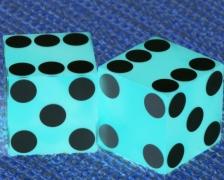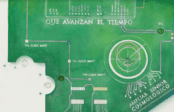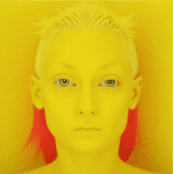[dropcap style=”font-size:100px; color:#992211;”]R[/dropcap]at Casino Klaxon!
Seriously. A rat casino. They built a rat casino. What’s the betting they called the rodents Dino, Sammy and Frank?
Scientists reduce behaviors associated with problem gambling in rats
With the help of a rat casino, University of British Columbia brain researchers have successfully reduced behaviours in rats that are commonly associated with compulsive gambling in humans.
[quote]the first successful
modeling of slot
machine-style gambling
with rats[/quote]
The study, which featured the first successful modeling of slot machine-style gambling with rats in North America, is the first to show that problem gambling behaviours can be treated with drugs that block dopamine D4 receptors. The findings have been published in Biological Psychiatry journal.
“More work is needed, but these findings offer new hope for the treatment of gambling addiction, which is a growing public health concern,” says Paul Cocker, lead author of the study and a PhD student in UBC’s Dept. of Psychology. “This study sheds important new light on the brain processes involved with gambling and gambling addictions.”
Rats gambled for sugar pellets
For the study, rats gambled for sugar pellets using a slot machine-style device that featured three flashing lights and two levers they could push with their paws. The rats exhibited several behaviours associated with problem gambling such as the tendency to treat “near misses” similar to wins.
Building on previous research, the team focused on the dopamine D4 receptor, which has been linked to a variety of behavioural disorders, but never proven useful in treatment. The study found that rats treated with a dopamine D4 receptor-blocking medication exhibited reduced levels of behaviours associated with problem gambling.
While findings suggest that blocking the D4 dopamine receptor may help to reduce pathological gambling behaviours in humans, the researchers note that further research is needed before the drugs can be considered a viable pharmaceutical treatment for pathological gambling in humans.
Background
Methods: In the 16-month study, a cohort of 32 laboratory rats responded to a series of three flashing lights before choosing between two levers. One combination of lights (all lights illuminated) signaled a win and seven combinations (zero, one or two lights) signaled a loss. A “cash-out” lever rewarded the rat with 10 sugar pellets on winning trials, but gave a 10-second “time out” penalty on losing trials. The “roll again” lever allowed the rats to begin a new trial without penalty, but provided no sugar pellets.
Interestingly, the rats showed a tendency towards choosing the cash-out lever when two lights (near-miss) illuminated, suggesting that rats, like people, are susceptible to the near-miss effect. By blocking the D4 receptors with drugs, the researchers were successfully able to reduce the rat’s choice of the “cash-out” lever on non-winning trials.
Study authors: Paul Cocker and Prof. Catharine Winstanley (UBC Dept. of Psychology), Bernard Le Foll (University of Toronto, Centre for Addiction and Mental Health) and Robert D. Rogers (Bangor University).
Source: University of British Columbia
Photo: Freedigitalphotos.net/Boaz Yiftach

Some of the news that we find inspiring, diverting, wrong or so very right.



















